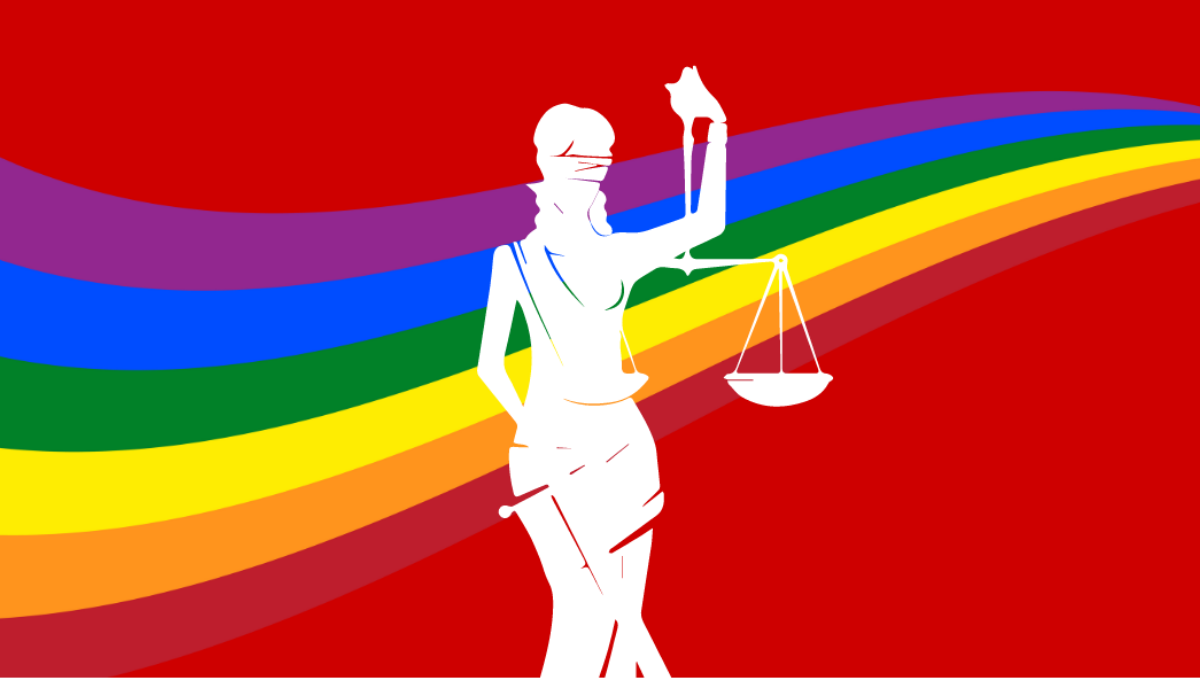Table of Contents
On October 17, 2023, the Five-judge Constitutional Bench of the Supreme Court delivered its verdict on the legality of same-sex marriages for the LGBTQ community. The verdict refused to recognize same-sex marriages based on some legal technicalities and has asked the government to set up a committee in order to “examine the rights” and all possible benefits for queer couples. The Supreme Court has also refused to strike down the Foreign Marriage Act 1969 as well as the Special Marriage Act 1954. Many arguments, both in favor and opposition, were voiced with respect to same-sex marriages, which has simultaneously opened grounds for various debates to follow in the course of history and time.
Same-Sex Marriage: Some key highlights
- CJI DY Chandrachud has made some noteworthy remarks and observations during the session. He has said that homosexuality should not be considered an “urban concept” or something that is restricted to elite communities of society. In fact, queer people exist, regardless of the location, caste, creed, or economic situation of an individual.
- He continued to say that the court must be careful “to not enter into the legislative domain”. It should be up to Parliament to decide if the Special Marriage Act is needed.
- Another remark made by him includes the idea that the choice of a life partner is “integral” to one’s life and this is a right that goes to “the root of the right to life and liberty under Article 21. Even though the state may put “reasonable restrictions” on such rights, the right to have “intimate association needs to be unrestricted.”
- Law should not make assumptions about parenting that spring from one’s sexuality as such assumptions can lead to the perpetuation of stereotypes, and prejudices biases, he added.
- Justice Sanjay Kishan Kaul has said that both heterosexual and non-heterosexual couples should be seen as two sides of the same coin. Today’s decision is an opportunity “to remedy the historical injustice and discrimination” and that is the reason that fundamental rights need to be granted to such unions.
- Justice Ravindra Bhat said that even though queer people should have the right to choose their partners but the nation-state cannot be “obligated to recognize the bouquet of rights flowing from such a Union.”
- Adoption rights for queer couples were also waived a red flag, as Justice Bhat added that “the State as parens patriae has to explore all areas and to ensure all benefits reach the children at large in need of stable homes.”
Same-Sex Marriage Verdict: What are the implications?
The decision of the Supreme Court on same-sex marriage today will be marked as a significant chapter in the history of continued struggles and discrimination of the LGBTQ community. Although the decision was not in favor of the queer community, the arguments and debates that took place have opened a whole new forum of ideas and concepts in the legal spaces of India. At the same time, the judgment has made it obvious that it would take a long time for the queer community to have access or agency to exercise basic fundamental rights, as it is a fight that will continue for years to come.
The discussion of and around gender
Solicitor General Tushar Mehta earlier argued that an individual’s gender is defined by one’s biological sex. To this line of argument, Chief Justice DY Chandrachud said that “there is no absolute concept of a man or an absolute concept of a woman at all” and one’s gender cannot be based on one’s genitals.
The ‘extraordinarily inclusive’ nature of Indian culture
CJI Chandrachud also attempted to shed light on the pervasive inclusive and diverse nature of Indian culture which started getting corrupted by Victorian morality of the 19th century afterwards. It was this morality that started criminalizing homosexuality.
The right to marriage
The CJI said that the institution of marriage has been largely characterized by the processes it has charted throughout the courses of history. The state regulates this institution because it feels the need to do so. However, Marriage as a concept cannot be understood as either static or stagnant.
